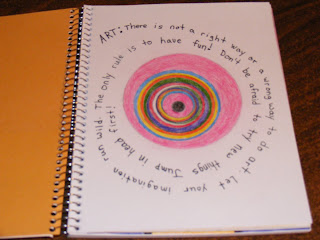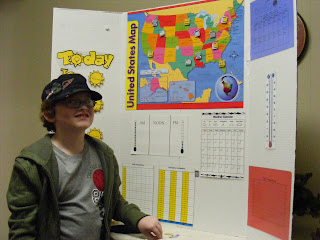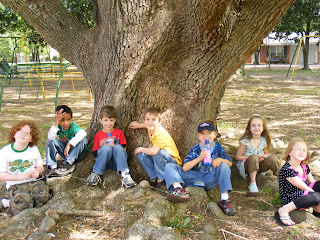I can't decide which set I like best.


Adventures of life and homeschooling at Bristle Ridge Academy; where we love, laugh, learn and live.
 I thought I'd share a picture of how Dakota spends a lot of time.
I thought I'd share a picture of how Dakota spends a lot of time.
 Elijah snapped this picture of Dakota in the van.
Elijah snapped this picture of Dakota in the van.

 It's always interesting to see what Elijah took pictures of. You never know what he'll get.
It's always interesting to see what Elijah took pictures of. You never know what he'll get.


 We had a fun day. They guys took some pictures and we had lunch out, a trip to Hobby Lobby and got a snow cone on the way home.
We had a fun day. They guys took some pictures and we had lunch out, a trip to Hobby Lobby and got a snow cone on the way home.

 I am not an artist so I really had no idea what I would put in this art journal. So on the first page I just doodled.
I am not an artist so I really had no idea what I would put in this art journal. So on the first page I just doodled. Then I decided to do some of the same projects Elijah was also doing.
Then I decided to do some of the same projects Elijah was also doing.
 Elijah was very impressed with my eye for some reason. This was done with colored pencils.
Elijah was very impressed with my eye for some reason. This was done with colored pencils. Elijah and I both did this abstract face. His turned out much better than mine.
Elijah and I both did this abstract face. His turned out much better than mine.

What is a unit study?
It is defined as an in-depth study of a topic (space, trees, cars, etc.) that takes into account many areas of the topic, such as geography, science, history, art, etc. It is a complete immersion into the topic so that the student will see things as a "whole" instead of bits and pieces learned throughout their education.
This concept of learning closely resembles the way that we learn and approach problems as an adult in today's world. Given a specific project as an engineer, I am expected to do the research to thoroughly define and understand all facets of the problem, as well as coming up with some solutions based on my newly-gained knowledge. The unit study approach works on the same principle, exposing students to an area for them to study in depth, examining the history, development, political impact, etc..
When I am using unit studies, I plan them so that while the child is learning the basic material, he/she is also reinforcing other academic skills. Reading skills are emphasized with the various books studied. Writing skills are developed through writing assignments, copying and dictation and journal writing. Thinking skills mature through hands-on activities and problem analysis.
Unit studies can be more interesting and captivating than standard textbook/workbook curriculum. They encourage the use of imagination, creativity and analytical thinking. Another advantage is that they can be worked on together by the whole family, teaching all of the children the same unit simultaneously while varying the assignments based on the child's capabilities. This saves the parent time and money, instead of having to buy, assign, teach and check separate workbooks and text materials for each child.
While unit studies are a terrific and effective way to learn, they do not replace a systematic and progressive program for math, phonics and grammar. It is my opinion that these areas have to be covered separately, using other curriculum, to give the child a solid foundation in these areas. They can be reinforced and applied through the unit study to allow the child to increase proficiency.
How do I use unit studies?
In preparing a unit study, I perform extensive research on the new topic, developing an outline that contains the most important points to learn, as well as questions to ask. This outline serves as the basis for my "Lesson Plan". I take the finished outline and divide it into portions to be covered during each of the weeks that we plan to spend on the study (typically 4 weeks).
Through the unit preparation, I will identify a list of important reference resources that will be used for the specific information and details. I will also identify a list of reading references that we can read for enjoyment about the topic -- typically fiction, sometimes classics. A good example would be the novel Swiss Family Robinson by Johann Wyss when studying Oceans. These lists will be my teaching materials for the duration of the unit study, drawn on for use during the appropriate sections of the study outline.
After getting the outline complete and the resources defined, I am ready to begin the unit study with the children. We typically work on the unit study for 4 weeks, and then move to a new unit study. I have found that my children tend to tire of a subject after much more than 4 weeks, so I try to keep the material interesting over shorter time periods to maintain their enthusiasm for learning!
Why use unit studies?
Students learn more detailed information from a unit study approach:
The subject is seen as a whole instead of bits of history, geography or science scattered throughout their education.
The understanding of the topic can then be easily applied to other areas and topics.
Students tend to retain more of the information than with traditional curriculum:
They learn all dimensions of the topic, not just important names or dates.
Students develop a profound understanding and keep it for a lifetime -- SUCCESS!!
All ages of students can be taught simultaneously:
Older students will have more difficult assignments and be expected to learn at higher levels.
Younger students will pick up what they are ready to learn and their assignments can be adjusted accordingly.
 Many years ago when Dakota was about 6 we were in a Konos co-op. As a group we studied the medieval years and then had a big feast where we invited grandparents to attend..
Many years ago when Dakota was about 6 we were in a Konos co-op. As a group we studied the medieval years and then had a big feast where we invited grandparents to attend.. Dakota and I decided we would each buy a charm to represent us and sew it on the banner.
Dakota and I decided we would each buy a charm to represent us and sew it on the banner. Over the years we have bought new charms and added to the banner. You'll see a stork charm one of the pictures above. It was added when we were expecting Elijah.
Over the years we have bought new charms and added to the banner. You'll see a stork charm one of the pictures above. It was added when we were expecting Elijah. Here is a little charm that says family and 4 figures to represent us.
Here is a little charm that says family and 4 figures to represent us. A cross to remind us to keep Christ in our family.
A cross to remind us to keep Christ in our family. That little elephant was Dakota's first charm on the banner. Dakota has collected elephants since he was two year old.
That little elephant was Dakota's first charm on the banner. Dakota has collected elephants since he was two year old.
 This is Elijah and a friend in science class working on animal classification.
This is Elijah and a friend in science class working on animal classification. Elijah in an art class.
Elijah in an art class. Elijah on the left end. This was from Presidents class.
Elijah on the left end. This was from Presidents class. Elijah being a meteorologist in science class.
Elijah being a meteorologist in science class. Science experiment.
Science experiment. Elijah and friends in board games class.
Elijah and friends in board games class. Dakota and his art teacher.
Dakota and his art teacher. Dakota teaching his computer class.
Dakota teaching his computer class. Elijah in math games.
Elijah in math games. Jody taught in co-op before his schedule changed. This is a picture from his science experiment class.
Jody taught in co-op before his schedule changed. This is a picture from his science experiment class. Dakota in art class.
Dakota in art class. Don't you think this is a cute bunch of kids?
Don't you think this is a cute bunch of kids? The sight word class had a wedding for Q & U. Elijah was not happy about being in that wedding.
The sight word class had a wedding for Q & U. Elijah was not happy about being in that wedding. Dakota in a math lab.
Dakota in a math lab. Elijah in an art class.
Elijah in an art class. If there's a bug, Elijah is going to find it.
If there's a bug, Elijah is going to find it. Dakota in a science class. Coke and mentos!
Dakota in a science class. Coke and mentos!
 Jody teaching a class.
Jody teaching a class. Elijah and friends hanging out around the big tree at co-op.
Elijah and friends hanging out around the big tree at co-op.